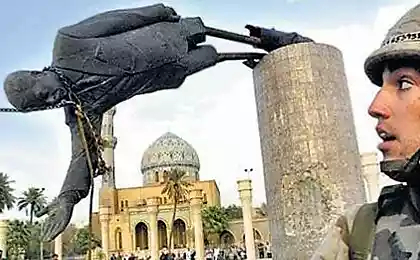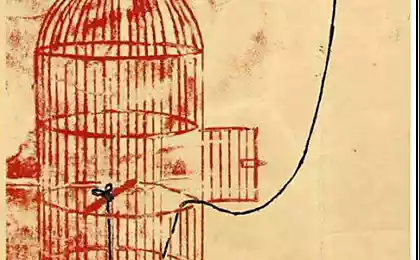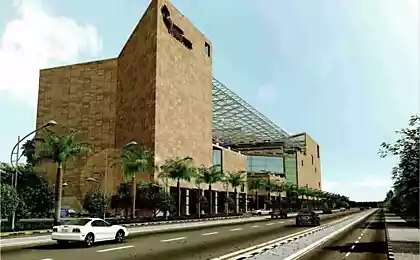694
Indian Gurgaon complete without a municipal government (2 photos)
Indian Gurgaon here for 32 years very well do without municipal authorities
One of the fastest growing and wealthiest cities in the world, India Gurgaon here for 32 years very well do without municipal authorities.
Gurgaon, India
POPULATION 1,514,085 people (the second largest city in the state of Haryana)
Located 30 kilometers south of New Delhi, one of four satellite towns of the capital of India
The Area 567 km2
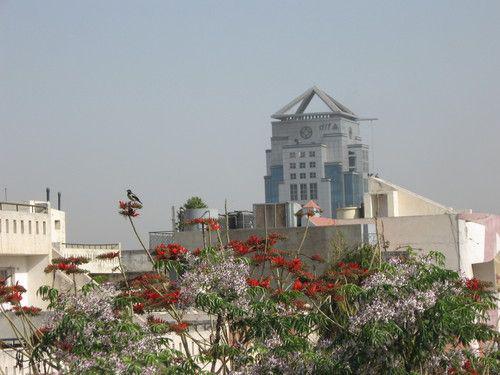
Etymology
The city's name is found even in the ancient Indian epic "Mahabharata". It is derived from the Sanskrit word "guru" (teacher) and Prakrit "Gaon" (Village).
History
Formed in 1979 in Gurgaon district had no direct rail link from New Delhi and almost no industry. But absent in Gurgaon municipal authority, and hence bureaucratic red tape. After economic reforms in 1991, many multinational companies have opened their offices in Gurgaon, which allowed him to become the most prosperous city in the country. Attractions
26 shopping centers, seven golf courses, a stadium, a 5-star hotel and commercial center futuristic Cyber City.
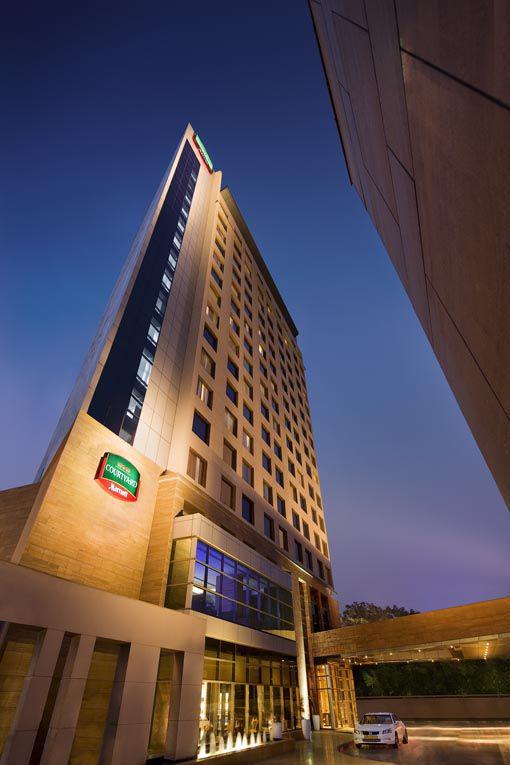
Utilities
In Gurgaon no municipal authority and, as a consequence, funded from the city budget sewer system, common electricity and water supplies, car parks and public transport. Law enforcement, transportation and other public services are run by the private sector.
Economy
500,000 jobs in Gurgaon, directly or indirectly related to the outsourcing activities of large multinational companies. There are offices of American Express, IBM, Microsoft, Suzuki, Honda, Ericsson, Oracle, Bank of America, American Airlines, Coca-Cola, Nokia, Motorola.
Achievements
According to a study of the magazine Business Today, Gurgaon is the best city in the country for quality of life. Gurgaon - the only city in India, where electricity provided all households. The city generates half of all revenue Haryana.
Security
After it became clear that the local police in a steady increase in the population is unable to cope with their responsibilities, some of the powers and tasks of law enforcement, including the regulation of traffic on the streets, were handed over to a private security agency. Currently in Gurgaon employs about 12,000 guards, which is almost 4 times higher than the number of state police.
Development
Over the past 12 years the population of Gurgaon has grown more than 70 percent. Last year alone, the number of cars in Gurgaon has increased by 50 thousand. The total amount of commercial space over the last 10 years has increased 10 times and now stands at 2, 8 million square meters - more than in the Indian capital New Delhi.
Transport
Due to the lack of public transport each located in Gurgaon large company contains several hundred private drivers who bring employees to work, and in the evening take them to their homes.
Problems
Public body HUDA (Agency for Urban Development Haryana), which should be responsible for the infrastructure of all settlements of the state lags behind the growth of Gurgaon. Areas that are outside the control areas of large corporations, in fact, are not served by anyone. As a result, the road condition is poor, often just garbage thrown by the wayside. In urban slums, some of which is located three kilometers from the Cyber City, is home to about 200,000 migrants who are mainly engaged in construction or as domestic helpers. Private extraction of water from underground aquifers leads to the fact that every year its level drops to 3 meters.
Source
One of the fastest growing and wealthiest cities in the world, India Gurgaon here for 32 years very well do without municipal authorities.
Gurgaon, India
POPULATION 1,514,085 people (the second largest city in the state of Haryana)
Located 30 kilometers south of New Delhi, one of four satellite towns of the capital of India
The Area 567 km2

Etymology
The city's name is found even in the ancient Indian epic "Mahabharata". It is derived from the Sanskrit word "guru" (teacher) and Prakrit "Gaon" (Village).
History
Formed in 1979 in Gurgaon district had no direct rail link from New Delhi and almost no industry. But absent in Gurgaon municipal authority, and hence bureaucratic red tape. After economic reforms in 1991, many multinational companies have opened their offices in Gurgaon, which allowed him to become the most prosperous city in the country. Attractions
26 shopping centers, seven golf courses, a stadium, a 5-star hotel and commercial center futuristic Cyber City.

Utilities
In Gurgaon no municipal authority and, as a consequence, funded from the city budget sewer system, common electricity and water supplies, car parks and public transport. Law enforcement, transportation and other public services are run by the private sector.
Economy
500,000 jobs in Gurgaon, directly or indirectly related to the outsourcing activities of large multinational companies. There are offices of American Express, IBM, Microsoft, Suzuki, Honda, Ericsson, Oracle, Bank of America, American Airlines, Coca-Cola, Nokia, Motorola.
Achievements
According to a study of the magazine Business Today, Gurgaon is the best city in the country for quality of life. Gurgaon - the only city in India, where electricity provided all households. The city generates half of all revenue Haryana.
Security
After it became clear that the local police in a steady increase in the population is unable to cope with their responsibilities, some of the powers and tasks of law enforcement, including the regulation of traffic on the streets, were handed over to a private security agency. Currently in Gurgaon employs about 12,000 guards, which is almost 4 times higher than the number of state police.
Development
Over the past 12 years the population of Gurgaon has grown more than 70 percent. Last year alone, the number of cars in Gurgaon has increased by 50 thousand. The total amount of commercial space over the last 10 years has increased 10 times and now stands at 2, 8 million square meters - more than in the Indian capital New Delhi.
Transport
Due to the lack of public transport each located in Gurgaon large company contains several hundred private drivers who bring employees to work, and in the evening take them to their homes.
Problems
Public body HUDA (Agency for Urban Development Haryana), which should be responsible for the infrastructure of all settlements of the state lags behind the growth of Gurgaon. Areas that are outside the control areas of large corporations, in fact, are not served by anyone. As a result, the road condition is poor, often just garbage thrown by the wayside. In urban slums, some of which is located three kilometers from the Cyber City, is home to about 200,000 migrants who are mainly engaged in construction or as domestic helpers. Private extraction of water from underground aquifers leads to the fact that every year its level drops to 3 meters.
Source

